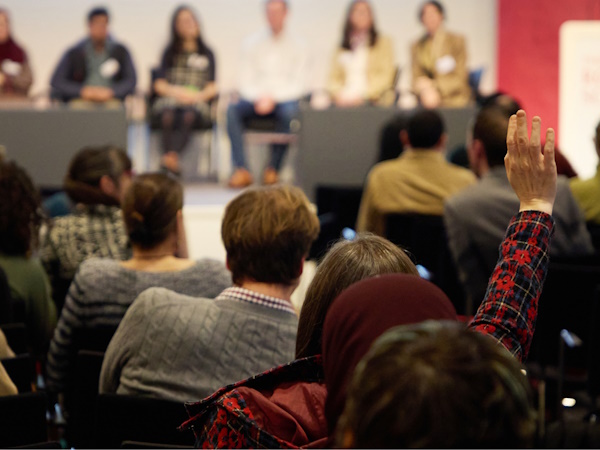Vision augmented hearing

Theo Murphy meeting organised by Professor Jennifer Bizley, Professor Michael Ackeroyd, Professor Adrian KC Lee.
Programme
The programme, including speaker biographies and abstracts, will be available soon. Please note the programme may be subject to change.
Poster session
There will be a poster session from 5pm on Tuesday 3 March 2026. If you would like to present a poster, please submit your proposed title, abstract (up to 200 words), author list, and the name of the proposed presenter and institution no later than Monday 10 February 2026. Acceptances may be made on a rolling basis so we recommend submitting as soon as possible in case the session becomes full. Submissions made within one month of the meeting may not be included in the programme booklet.
Attending the event
This event is intended for researchers in relevant fields.
- Free to attend and in-person only
- When requesting an invitation, please briefly state your expertise and reasons for attending
- Requests are reviewed by the meeting organisers on a rolling basis. You will receive a link to register if your request has been successful
- Catering options will be available to purchase upon registering. Participants are responsible for booking their own accommodation. Please do not book accommodation until you have been invited to attend the meeting by the meeting organisers
Enquiries: Contact the Scientific Programmes team.
